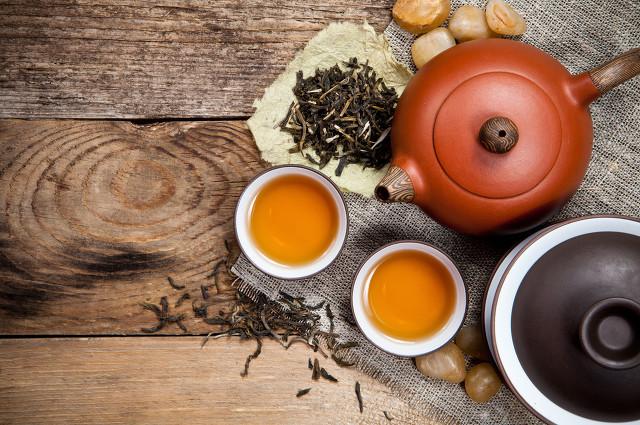Healthy Eating
Healthy eating is not just about consuming the right number of calories or shedding excess weight. It's a holistic approach that encompasses a balanced intake of nutrients, understanding the body's needs, and cultivating a mindful relationship with food. Embracing a healthy diet can significantly enhance your overall well-being, boost your immune system, and increase longevity.
The foundation of a healthy diet lies in its diversity and balance. It should include a wide variety of foods to ensure you're getting a broad spectrum of nutrients. This means incorporating plenty of fruits and vegetables, whole grains, lean proteins, and healthy fats into your daily meals. Each food group has its own unique benefits, and together they provide a comprehensive nutrient profile that supports bodily functions.
Fruits and vegetables are rich in vitamins, minerals, and antioxidants. These nutrients are crucial for protecting the body against oxidative stress, reducing inflammation, and supporting various physiological processes. For instance, vitamin C found in citrus fruits boosts the immune system, while the beta-carotene in carrots promotes healthy vision. Including a rainbow of produce in your diet ensures you reap the benefits of a wide range of phytonutrients.
Whole grains, such as brown rice, quinoa, and oats, are excellent sources of complex carbohydrates, fiber, and essential minerals. Unlike refined grains, whole grains maintain their nutritional integrity, providing sustained energy and promoting digestive health. Fiber, in particular, is vital for maintaining regular bowel movements, controlling blood sugar levels, and lowering cholesterol.
Protein is another essential component of a healthy diet. It is the building block of muscles, tissues, and organs. Lean protein sources like fish, poultry, beans, and legumes offer the necessary amino acids without the added saturated fats found in red meats. Additionally, fish such as salmon and mackerel are rich in omega-3 fatty acids, which are known for their heart-protective properties.
Healthy fats, often overlooked, are crucial for brain health, hormone production, and cell function. Sources of healthy fats include avocados, nuts, seeds, and olive oil. These fats help in the absorption of fat-soluble vitamins (A, D, E, and K) and provide a concentrated source of energy.

Diet
A balanced diet is not only about what you eat but also how you eat. Mindful eating encourages a deeper connection with food, promoting better digestion and a more satisfying eating experience. It involves paying attention to hunger and fullness cues, savoring each bite, and avoiding distractions like television or smartphones during meals. This practice can prevent overeating and help cultivate a healthy relationship with food.
Hydration is another critical aspect of a healthy diet. Water is essential for nearly every bodily function, from regulating temperature to aiding digestion and nutrient absorption. Aim to drink at least eight glasses of water a day, and more if you are physically active or live in a hot climate. Herbal teas and water-rich fruits and vegetables like cucumbers and watermelon can also contribute to your daily fluid intake.
Meal planning and preparation are practical tools to ensure you're consistently eating a healthy diet. By planning your meals ahead of time, you can make more informed choices, avoid impulsive eating, and save time and money. Preparing meals at home allows you to control the ingredients and cooking methods, reducing the intake of unhealthy fats, sugars, and salt commonly found in restaurant and processed foods.
Wellness
The concept of wellness extends beyond physical health to encompass mental and emotional well-being. Nutrition plays a pivotal role in this holistic approach. Certain nutrients have been shown to influence mood and cognitive function. For example, omega-3 fatty acids, found in fish and flaxseeds, have been linked to reduced symptoms of depression and anxiety. Similarly, magnesium, present in leafy greens and nuts, is known to have a calming effect on the nervous system.
Regular physical activity complements a healthy diet, contributing to overall wellness. Exercise helps maintain a healthy weight, reduces the risk of chronic diseases, and improves mental health. A combination of aerobic exercises, strength training, and flexibility exercises ensures a well-rounded fitness routine.
Sleep is another critical component of wellness. A balanced diet can improve sleep quality by regulating blood sugar levels and providing the nutrients needed for the production of sleep-regulating hormones like melatonin. Foods rich in tryptophan, such as turkey, nuts, and seeds, can promote better sleep by increasing the production of serotonin and melatonin.

Longevity
The pursuit of longevity is often associated with maintaining a youthful appearance and preventing age-related diseases. However, longevity also means living a life filled with vitality and energy. A healthy diet is a cornerstone of this goal. Nutrient-dense foods provide the building blocks necessary for cellular repair and regeneration, helping to slow the aging process.
Antioxidant-rich foods, such as berries, dark chocolate, and green tea, combat oxidative stress, a major contributor to aging and chronic diseases. These antioxidants neutralize free radicals, protecting cells from damage and reducing the risk of conditions like heart disease, cancer, and Alzheimer's disease.
In addition to a healthy diet, other lifestyle factors contribute to longevity. Stress management techniques, such as meditation, yoga, and deep breathing exercises, can reduce the harmful effects of chronic stress on the body. Social connections and a sense of purpose are also important for long-term health and well-being. Engaging in community activities, maintaining relationships, and pursuing hobbies can enhance quality of life and promote longevity.
Finally, regular health check-ups and preventive care are essential for early detection and management of potential health issues. Routine screenings and consultations with healthcare professionals can help you stay on top of your health and make informed decisions about your lifestyle and diet.
In conclusion, healthy eating is more than just a dietary choice; it is a lifestyle that encompasses balanced nutrition, mindful eating, and overall wellness. By embracing a diverse and nutrient-rich diet, staying hydrated, engaging in regular physical activity, and maintaining a positive mindset, you can enhance your quality of life and increase your chances of living a long, healthy life.
版权声明
本文仅代表作者观点,不代表成都休闲网立场。
本文系作者授权发表,未经许可,不得转载。

























